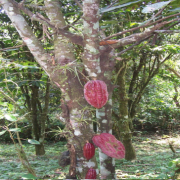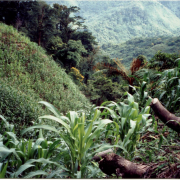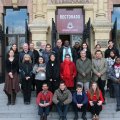Good environmental practices developed by local communities in Latin America will be studied by civil and scientific organizations in a research project coordinated by the University of Córdoba in Spain. Prof. Maria del Mar Delgado explains that "NGOs and researchers will combine scientific knowledge and local knowledge to work together on 3 different case studies: water management and biodiversity in Colombia, forest management in Mexico and coastal and marine management in Argentina".

The University of Córdoba (UCO) leads a research project that will identify and analyze local solutions developed to prevent and resolve tensions arising from the use of natural resources, including ecosystem services, due to environmental and climatic changes.
Córdoba, February 13, 2012 - University of Córdoba (UCO)
The COMET-LA research project (Community-Based Management of Environmental Challenges in Latin America - Management participatory community environmental challenges in Latin America) is funded by the 7 th Framework Programme of the European Commission.
The current development model is causing a series of unprecedented environmental challenges, including climate change. Facing these challenges and how to manage them will be one of the most relevant questions that researchers are trying to solve.
Effects of global problems are often felt locally, especially in communities that traditionally base their livelihood on natural resources and now face declining stocks, changes in property rights or increasing the competition for the use of resources. This is the reason that many good conservation practices are carried out locally, and the project will investigate local capacity to reach these local solutions. NGOs and researchers will work together on 3 different case studies: water management and biodiversity in Colombia, forest management in Mexico and coastal and marine management in Argentina. Comparative methods will be used to characterize the current and future state of the ecosystems, sustainable governance models and local scenarios for future changes and challenges. The results will help shape a potentially useful tool for local communities facing environmental changes.

Soyolapan, México
The project aims to combine scientific knowledge and local communities facing environmental problems, so that in each country of study (Colombia, Mexico and Argentina) universities will work closely with social organizations. In total there are seven research institutions (3 Latin American and 4 European, including UCO), 3 NGOs in Colombia, Mexico and Argentina, and the Spanish Committee of IUCN as a global organization.
Thus, the Pontificia Universidad Javeriana and the Community Council of the Black Community of the Lower Basin of the Rio Calima address the problem of water management and biodiversity in Colombia, to access natural resources over-exploitation of them.
The National Autonomous University of Mexico will work with the Civil Association for Rural Studies and Advising Farmers in the study of models of sustainable land management, especially in the conservation of forests.
For its part, the National Council of Scientific and Technical Research of Argentina and Fundación Aquamarina-Cecima work on improving coastal and marine management, especially in the estuary of Bahia Blanca.
European organizations such as the Norwegian Institute of Luftforskning, The Macaulay Land Use Research Institute in the UK, the Portuguese company, Viveiros de Marisco Sagremarisco Lda, the University of Córdoba and the Spanish Committee of the IUCN, will participate in the study and help to provide greater international scope so that the benefits can extend to other communities with similar challenges.

Milpa, México




